Deadstock, Upcycling, and Beyond: 18 Eco-Conscious Brands to Support for Earth Day
From statement-making accessories to cruelty-free beauty, here are the must-know labels making an environmental impact this Earth Day.
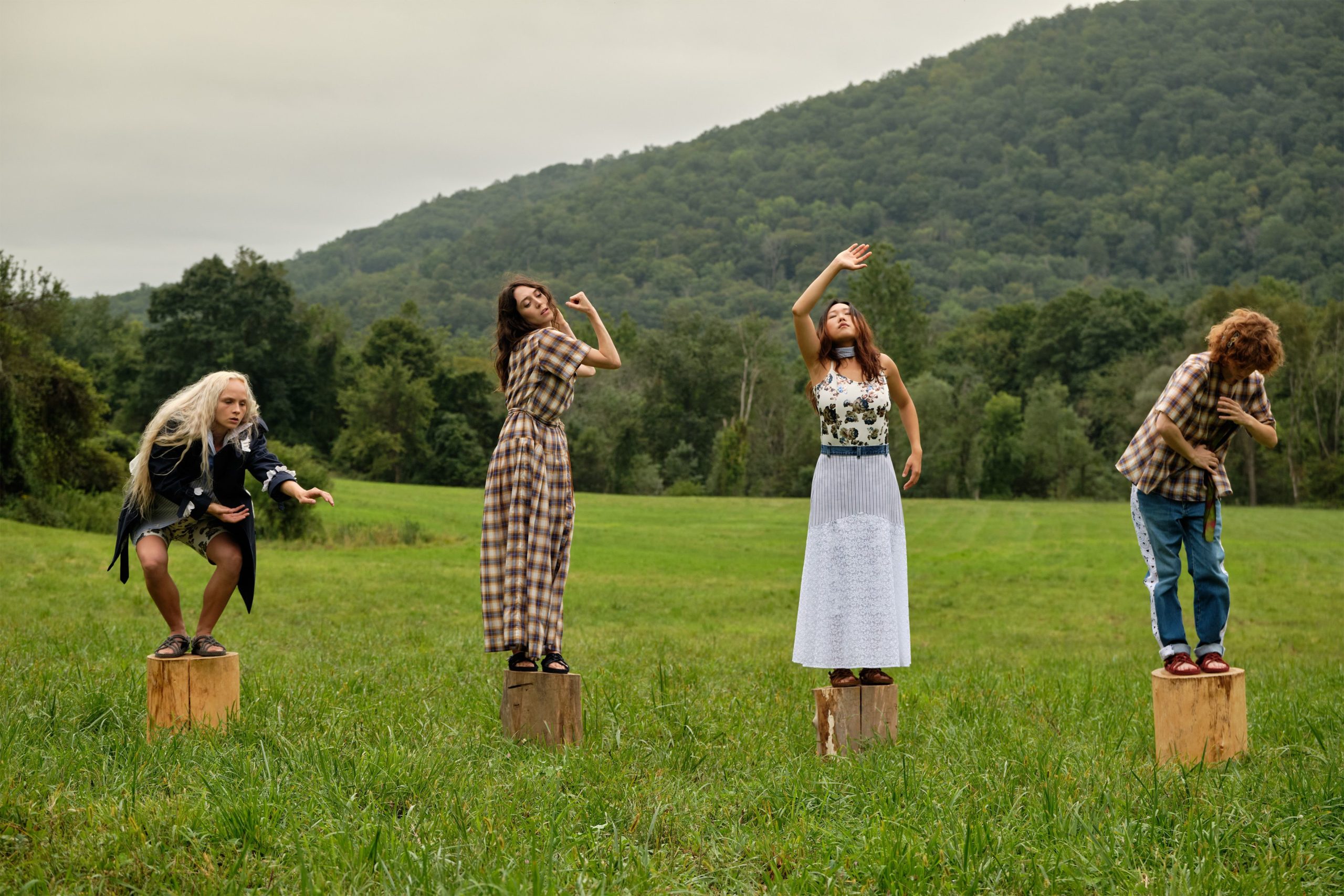
In the realm of fashion and beauty, the hot-button phrase ‘sustainability’ is always swirling about. From zero-waste packaging and production to focuses on upcycling, naturally, brands and designers alike are responding to the global effects of climate change and overconsumption. And in a sphere as polluting as the fashion industry—which produces nearly 92 millions tons of textile waste annually—consumers are increasingly looking to support ethical and environmentally friendly labels, though what does ‘sustainability’ actually entail?
“[Sustainability] means creating something that feels new out of something old or discarded.” Erin Beatty, founder of New York label Rentrayage, tells V. “For me, it’s about questioning my training—the way I [design] and was trained to develop clothing. How can I do it in a more precise and focused way without the incessant waste the development process creates?” As social media platforms spur a never-ending cycle of fashion trends, designers nowadays are working against that never-ending churn. Instead, many are shunning the traditional fashion calendar or, in the case of Beatty, giving second life to vintage materials that would have otherwise gone to waste.
Too, brands are re-focusing their efforts on long-lasting, durable pieces that are made to last. “Fast fashion brands that are creating low quality goods and using textiles and treatments that are extremely polluting is [an] issue,” designer Eliza Faulkner explains. “Everything we do should enrich the world, not take away from it. There are more creative and interesting ways to make money than exploitation.”
To celebrate Earth Day, V has rounded up a sustainable—and of course, fashionable—range of ready-to-wear brands, accessory labels, and beauty brands that specialize in eco-conscious practices. Whether it be tech-focused beauty brands or ethically produced fashion labels, the below brands are making a sizable difference in the ever-changing fashion industry. Below, see 18 sustainable brands to support for Earth Day.
Fashion:
Connor Ives:
Following stints at JW Anderson and Rihanna’s Fenty, 26-year-old designer Connor Ives is intent on making an impact through his blossoming eponymous label. The American creative’s paneled dresses and sports tops are crafted from hand-sourced vintage garments from factories in the United Kingdom. Toying with themes of Americana, Ives’ unique creations are one-of-a-kind and fabricated in tandem with his small London-based design team.
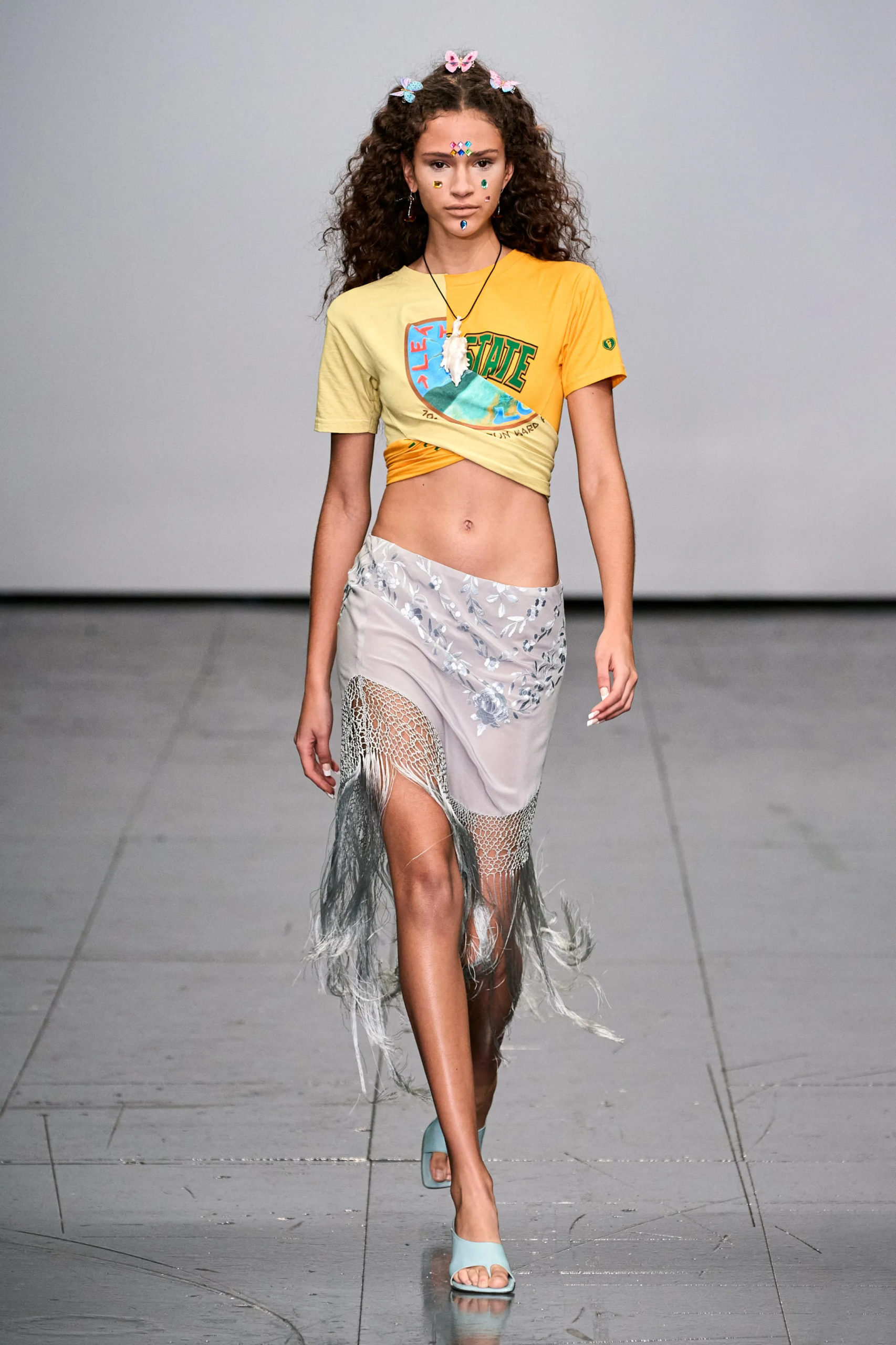
Rentrayage:
Founded in 2019 by designer Erin Beatty, Rentrayage—an expired French term meaning ‘to mend’—specializes in one-of-a-kind garments crafted from upcycled and vintage textiles. The New York brand’s spliced tie-dye tees are a best seller and the label has recently ventured into the realm of recycled home goods. Too, the brand is committed to circularity—materials are sourced locally and customers can also return items to the brand to be repurposed. Rentrayage strives to create fresh, attention-grabbing pieces made without the excess waste typical of a fashion brand: since the label upcycles its vast range of textiles, it does not use mass amounts of water, fabrics, or other resources throughout the design phase.
“Rentrayage is a lifestyle” Beatty explained. “It’s answering a consumer need—a place where you can come to find something that feels new and different, but you don’t have to feel guilty about. I wanted Rentrayage to address a new lifestyle, one in which we are more considerate and thoughtful about what we consume.”
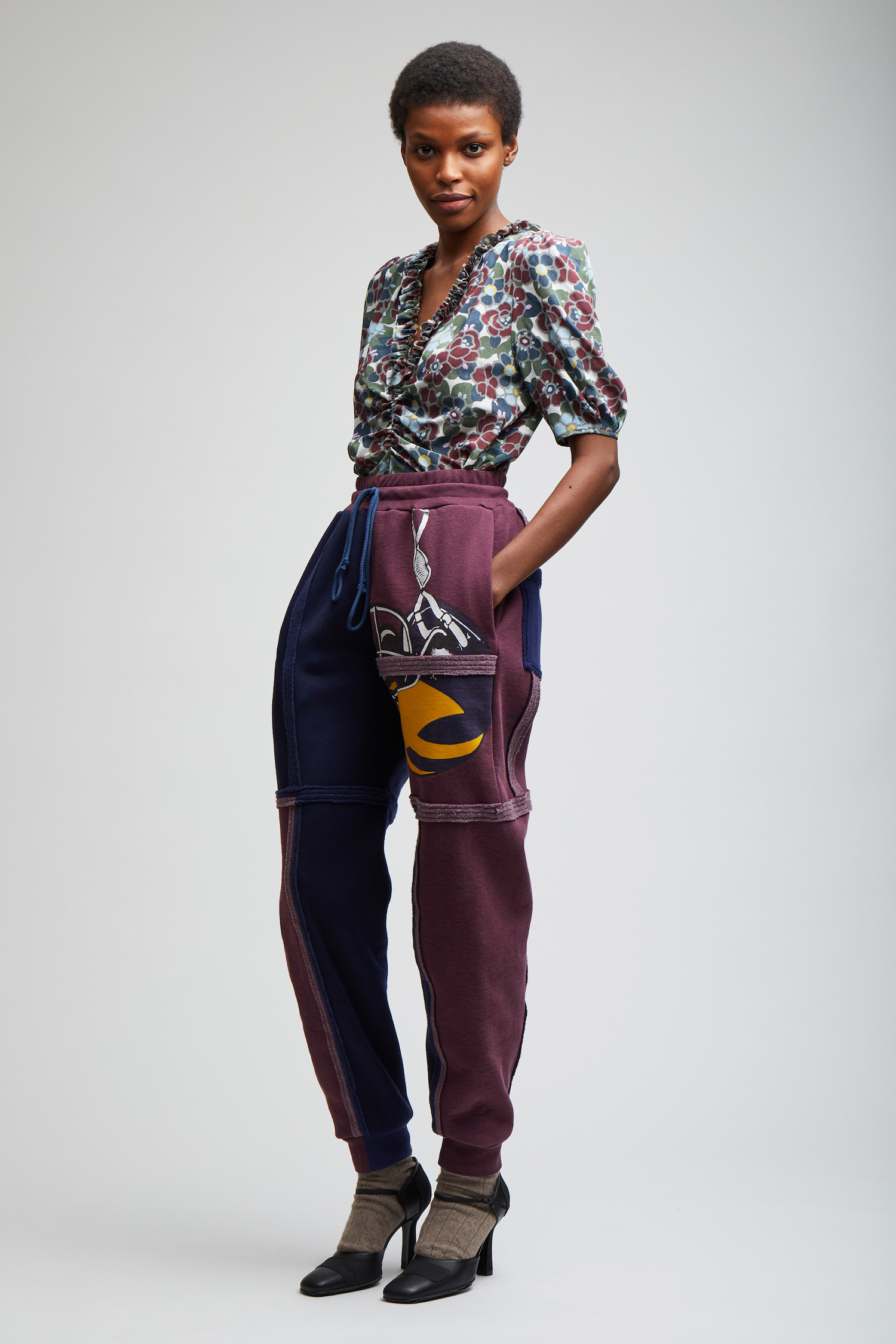
Pangaia:
Per the brand, “Pangaia is a materials science company on a mission to save our environment.” The fashion-meets-technology-meets-science brand does not operate on the typical fashion calendar. Instead the brand opts to prioritize well-made, long-lasting essentials. The label committed to net zero operations by 2025 and will also be operated by 100% renewable energy by that date.
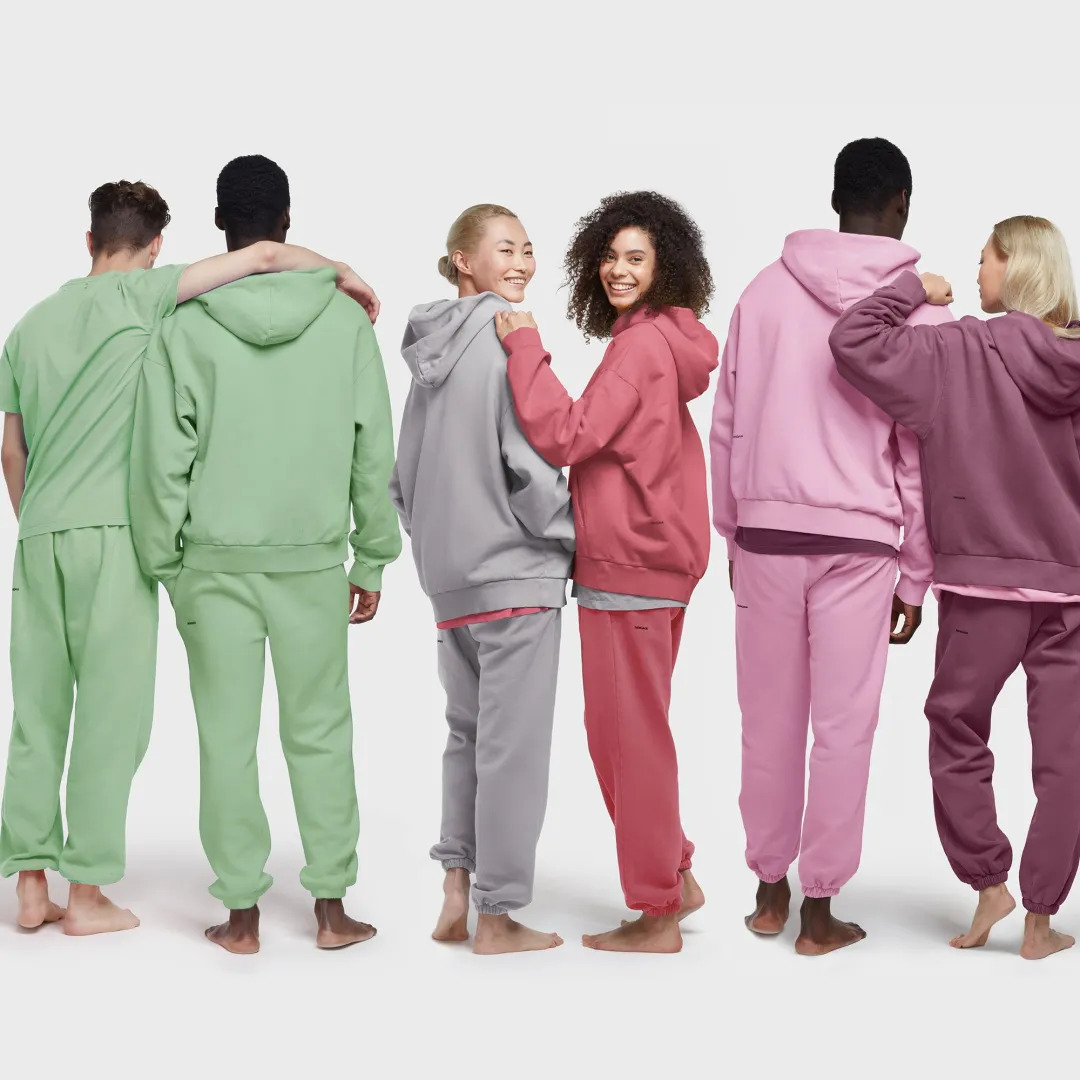
Collina Strada:
Though Hillary Taymour, the creative force behind Collina Strada, rejects the moniker of a ‘sustainable brand,’ the designer sees her brand as a vessel for social change. Sunny, floral-infused ready-to-wear and playful accessories deepen the eco-conscious narrative around the New York brand: the label produces locally and regularly utilizes upcycled and deadstock fabrics. Too, for the Fall/Winter 2020 season, Collina Strada partnered with The OR—an organization that strives to repurpose textile waste in Ghana.
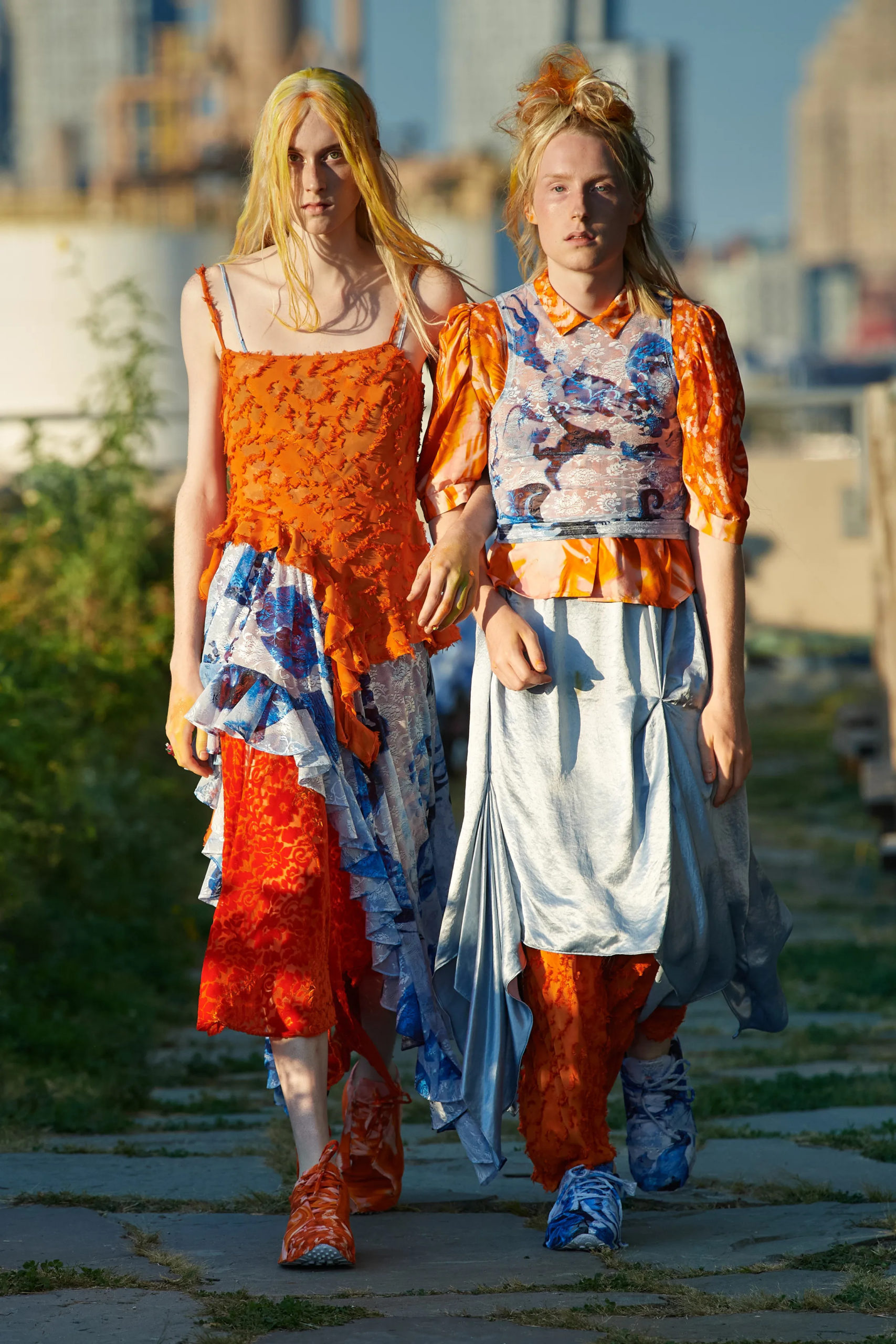
Stella McCartney:
An OG of eco-conscious fashion, Stella McCartney has incorporated sustainable practices and textiles since her brand’s inception in the early 2000s. The label has not used fur, leather, or skins for over two decades and has recently introduced bio-acetate, recycled polyester, and biodegradable stretch denim.
McCartney’s hugely popular collaboration, adidas by Stella McCartney, marked the first garments crafted with NuCycle yarn and Koba Fur Free Free: sustainable and recyclable animal alternatives derived from plant-based plastic and reused polyester.
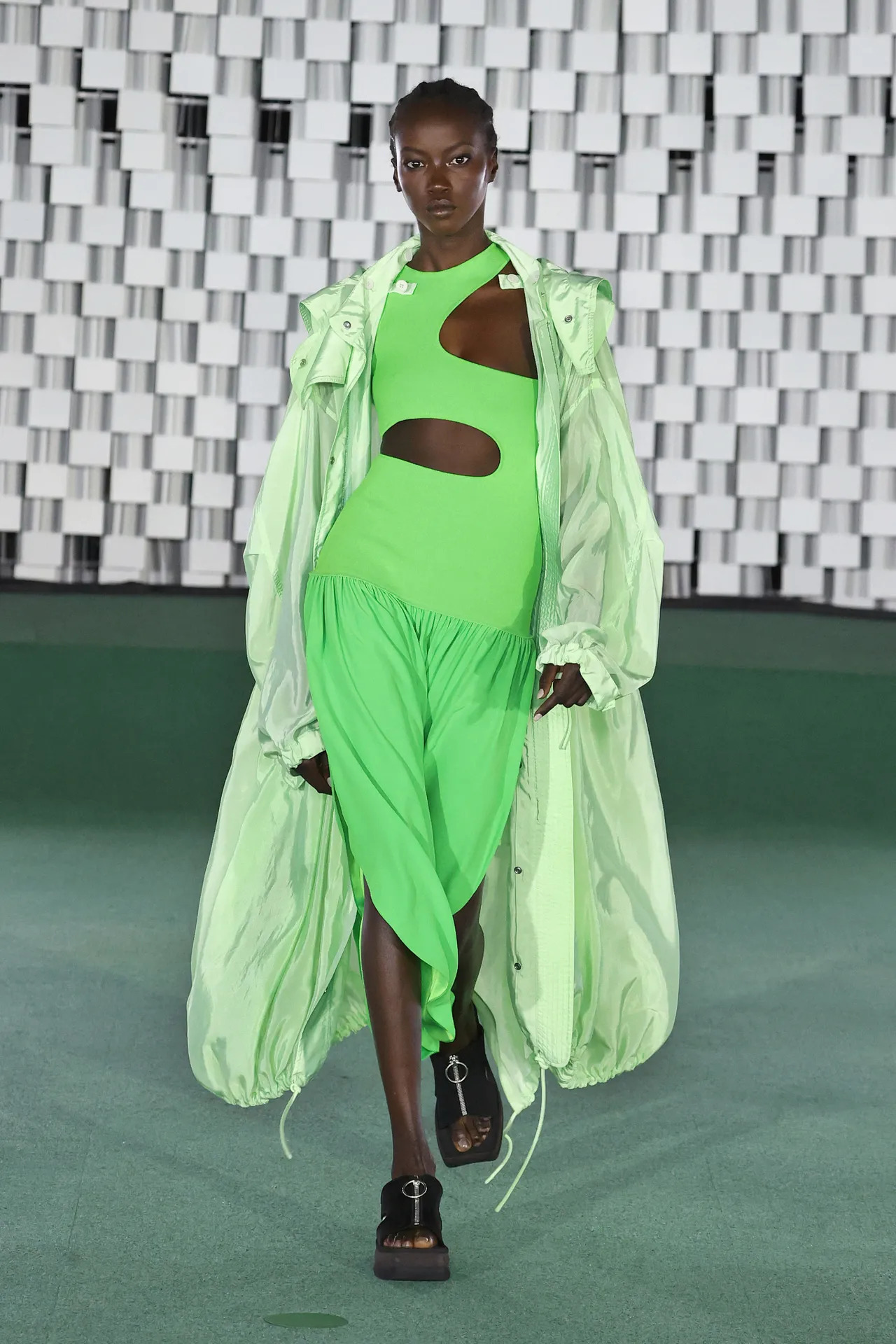
Eliza Faulkner:
Feminine and playful, Eliza Faulkner‘s eponymous label is packed full of flowing, whimsical gowns and spirited ready-to-wear. Established in 2012, the Montréal-based brand is designed and sewn in the Canadian city and utilizes a bevy of deadstock textiles. Since the brand produces locally, its compact supply chain helps to cut down on excess waste and carbon emissions.
“When I started my brand, ‘sustainable’ fashion was very beige and I wanted an alternative to that,” Faulkner says. “I started using deadstock when I saw all the amazing fabrics available locally at dealers in Montréal. There is still a pretty big garment industry here and the leftovers from bigger brands are everywhere, so I use that to produce locally and keep my supply chain very short. ”
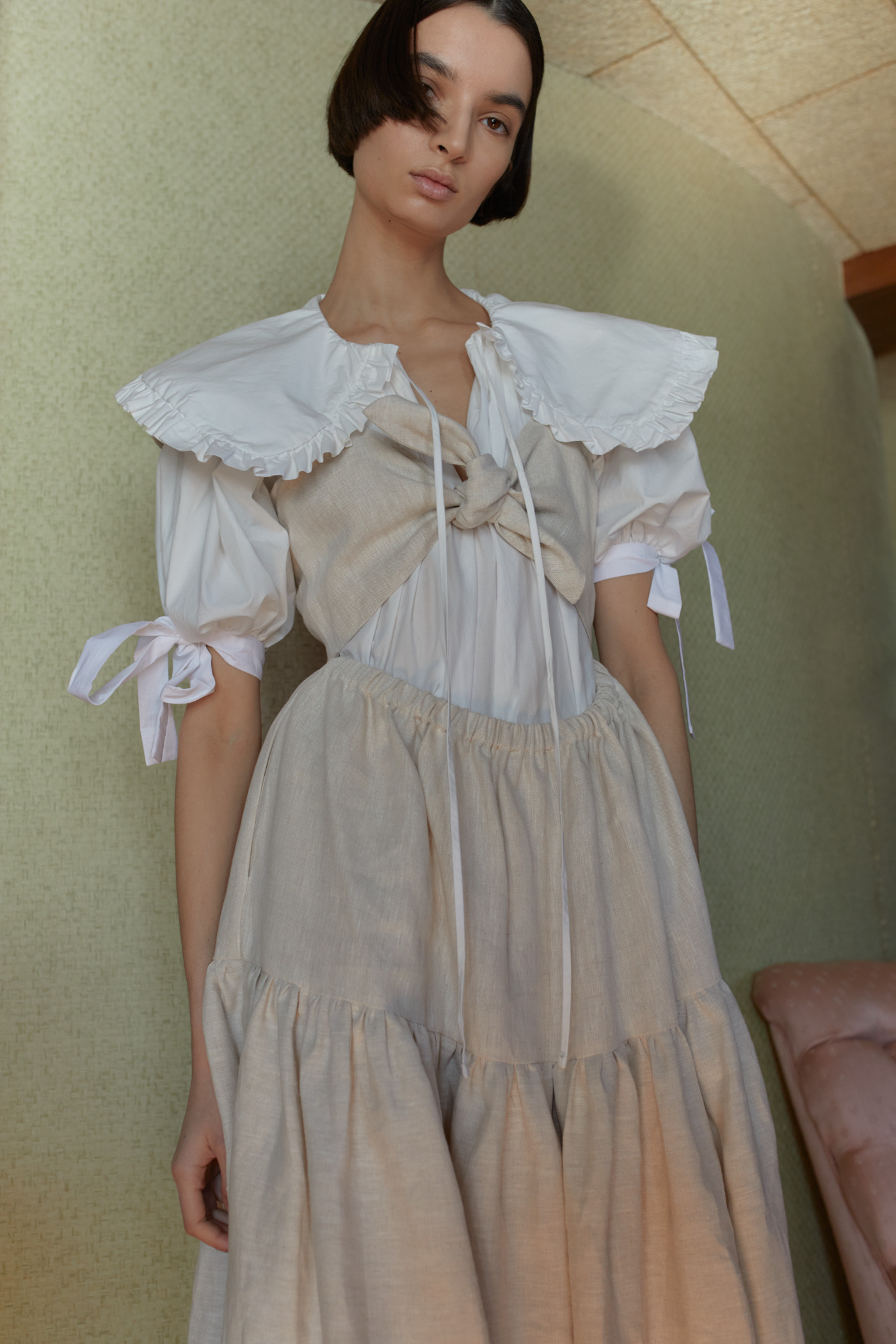
Beauty:
Nécessaire:
Clean beauty brand Nécessaire offers a diverse range of products—fragrance-free body oil, eucalyptus deodorant, anti-aging body serum, and more. The brand does not utilize parabens, sulfates, silicones, or synthetic dyes and is plastic and carbon neutral certified. The brand is also a part of the 1% For The Planet Pledge, an organization where members allocate 1% of every sale to environmental non-profits.
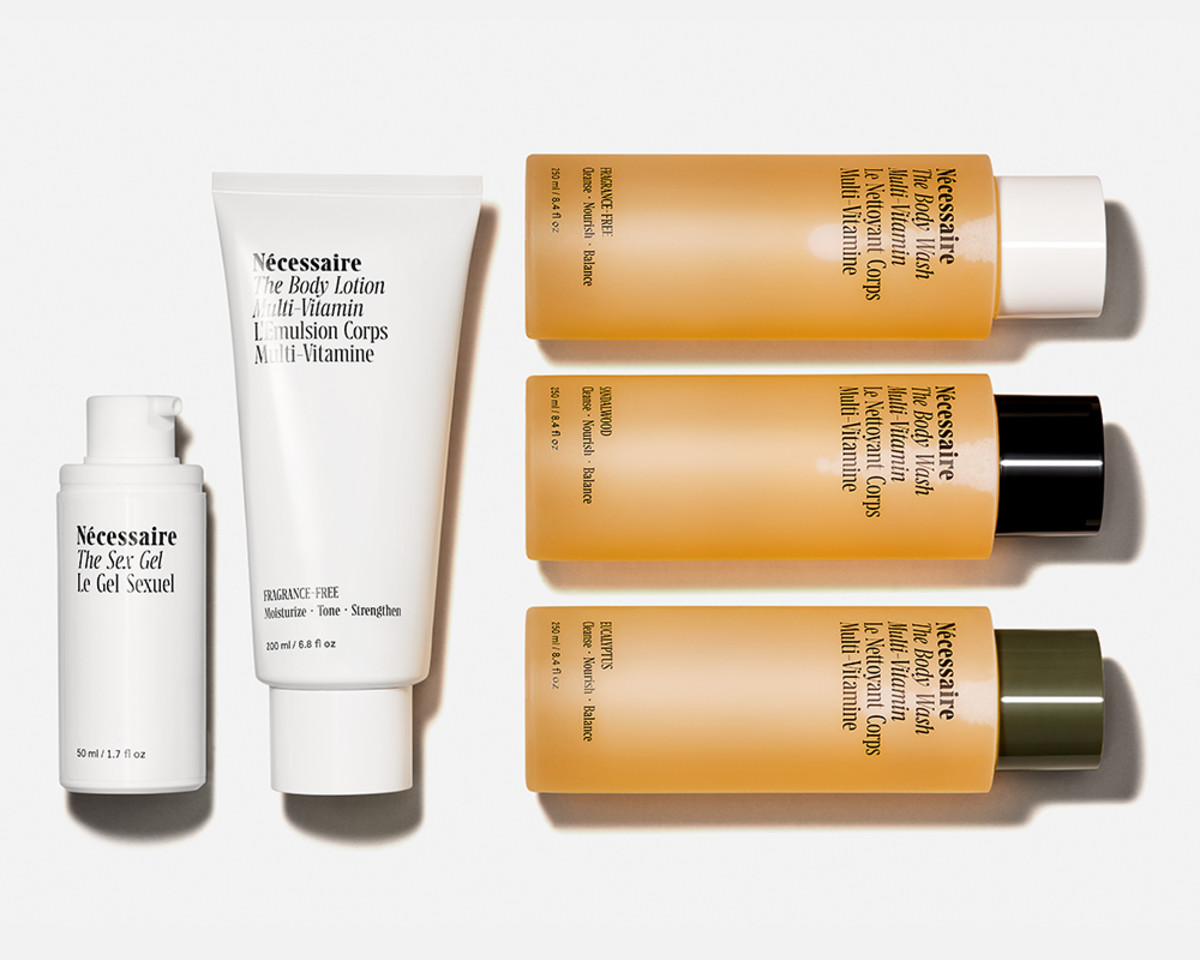
Biossance:
Skincare label Biossance merges biotechnology with top-notch skincare. The label is known for its shark-saving squalene—an oil found in sharks that is used to create skincare products. Working in tandem with scientists, Biossance created a renewable, sugarcane-derived version that saves over 2 million sharks. Not only that, the label banned over 2,000 ingredients known to be harmful to the environment and utilizes recyclable packaging and outer cartons made from renewable sugarcane paper.
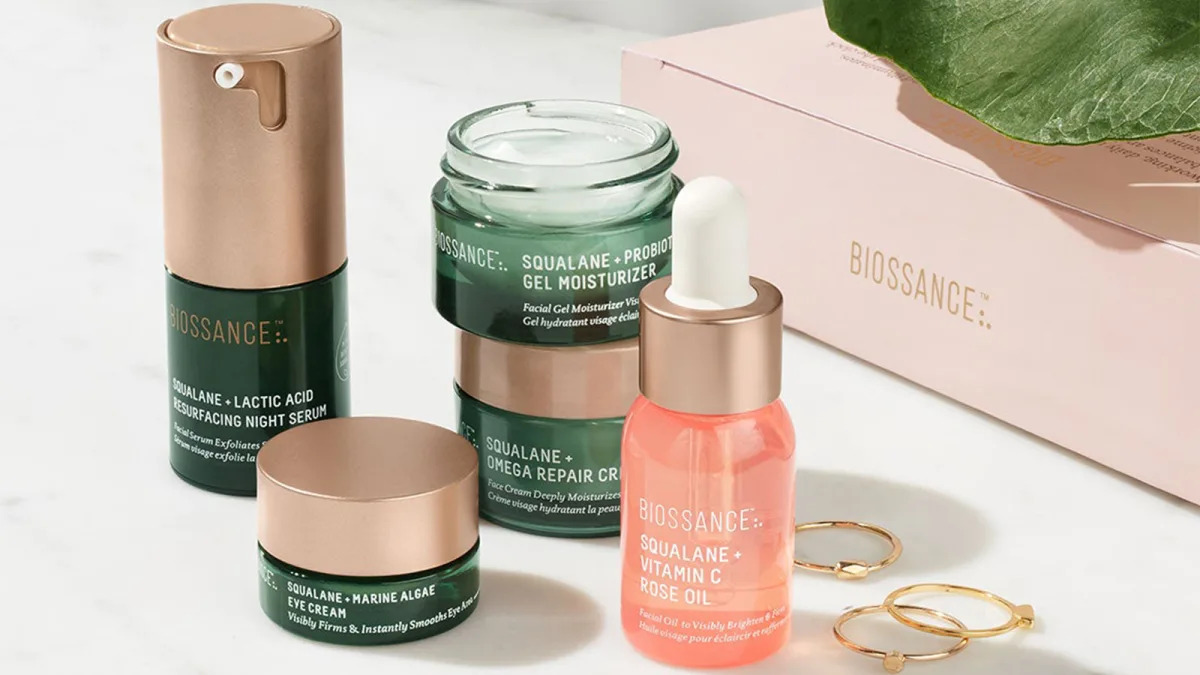
Milk Makeup:
In search of a cruelty-free and vegan certified beauty brand? Look no further than Milk Makeup. Since launching in 2016, the label has been infusing sustainable and eco-conscious elements into its packaging, formula, and so much more. In 2021, Milk Makeup redesigned its e-commerce shipping system to utilize recyclable bags and boxes designed with petroleum-free plant-based ink and 100% post-consumer waste.
Also, the brand relaunched the Sunshine Skin Tint SPF 30, Sunshine Under Eye Tint + Brighten, and other select products with refillable cartridges that reduce plastic by up to 66%. Not only making a difference packaging-wise, all Milk Makeup products are vegan and cruelty-free certified.
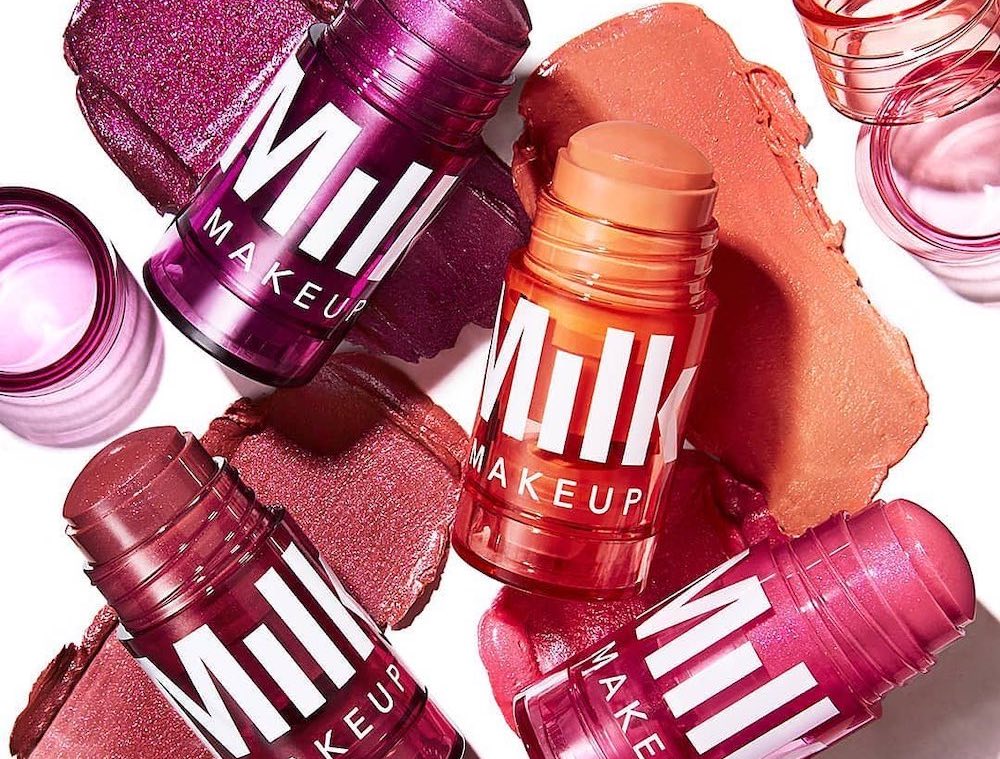
Tata Harper:
Since its creation, skincare go-to Tata Harper is on a cruelty-free mission to craft products that are good for people and the planet. Placing an emphasis on reducing waste, the brand formulates and fill orders rather than outsourcing that process to another entity—giving the brand full visibility and control over the process. Formula-wise, the brand uses ingredients that are biodegradable and byproduct and synthetic chemical free. From hydrating essences to silky body balm, Tata Harper’s farm-fresh products and production are a prime option to support on Earth Day and beyond.
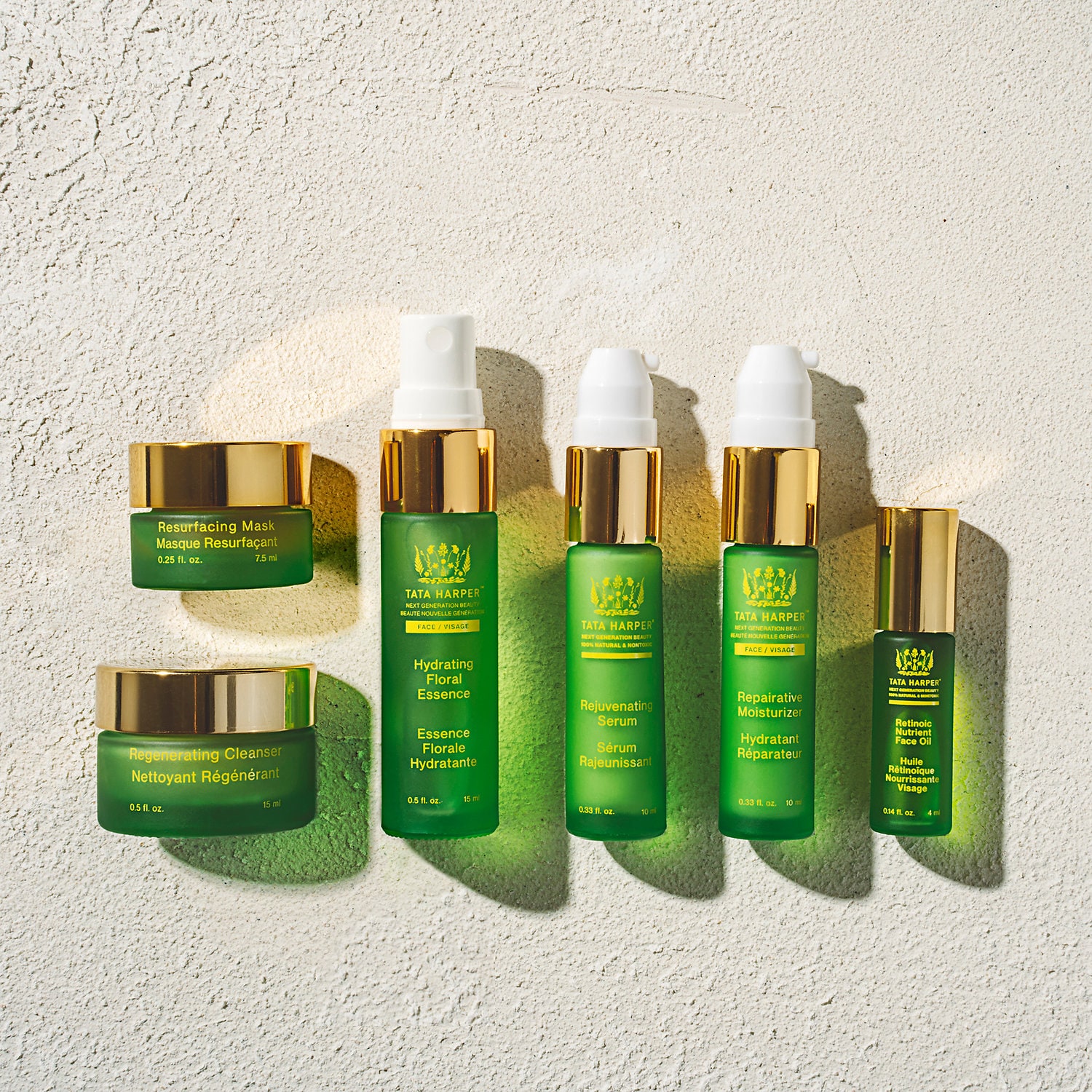
Ilia:
Blending varied pigments and clean, organic ingredients, makeup brand Ilia offers a variety of cruelty-free products: skin tints, mascara, foundation, and a host of others. Though Ilia is not solely a skincare brand, the label’s makeup formulas are infused with a host of potent ingredients that shield skin from environmental stressors while maintaining a dewy, natural look. Ilia uses the Pact Collective‘s makeup recycling program, which allows consumers to mail in up to 10 products from any brand per month to be recycled.
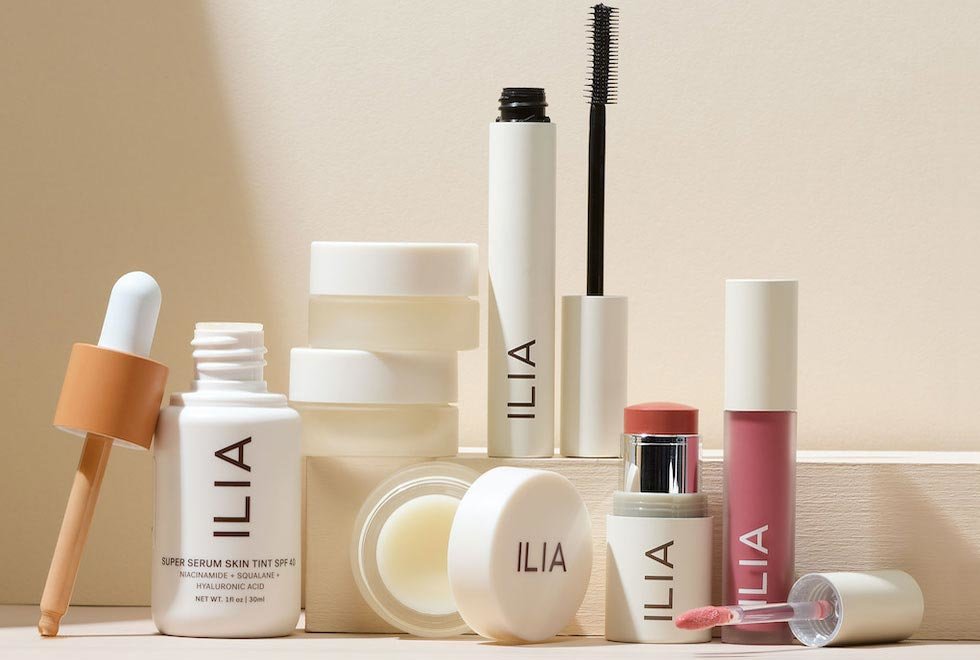
RMS Beauty:
With all-natural beauty and organic skincare, RMS Beauty is the best of both worlds. From color-packed eye pencils to raw coconut moisturizers, the brand uses a host of raw, food grade, organic, and wildcrafted ‘living ingredients’ that are as equally beneficial to the skin as they are to the environment.
RMS Beauty’s products are free of harmful chemicals, synthetic preservatives, synthetic vitamins, GMOs and are shipped in recyclable and reusable packaging. The brand’s impressive shade ranges are meant to be mixed together to create a personalized, one-of-a-kind hue.
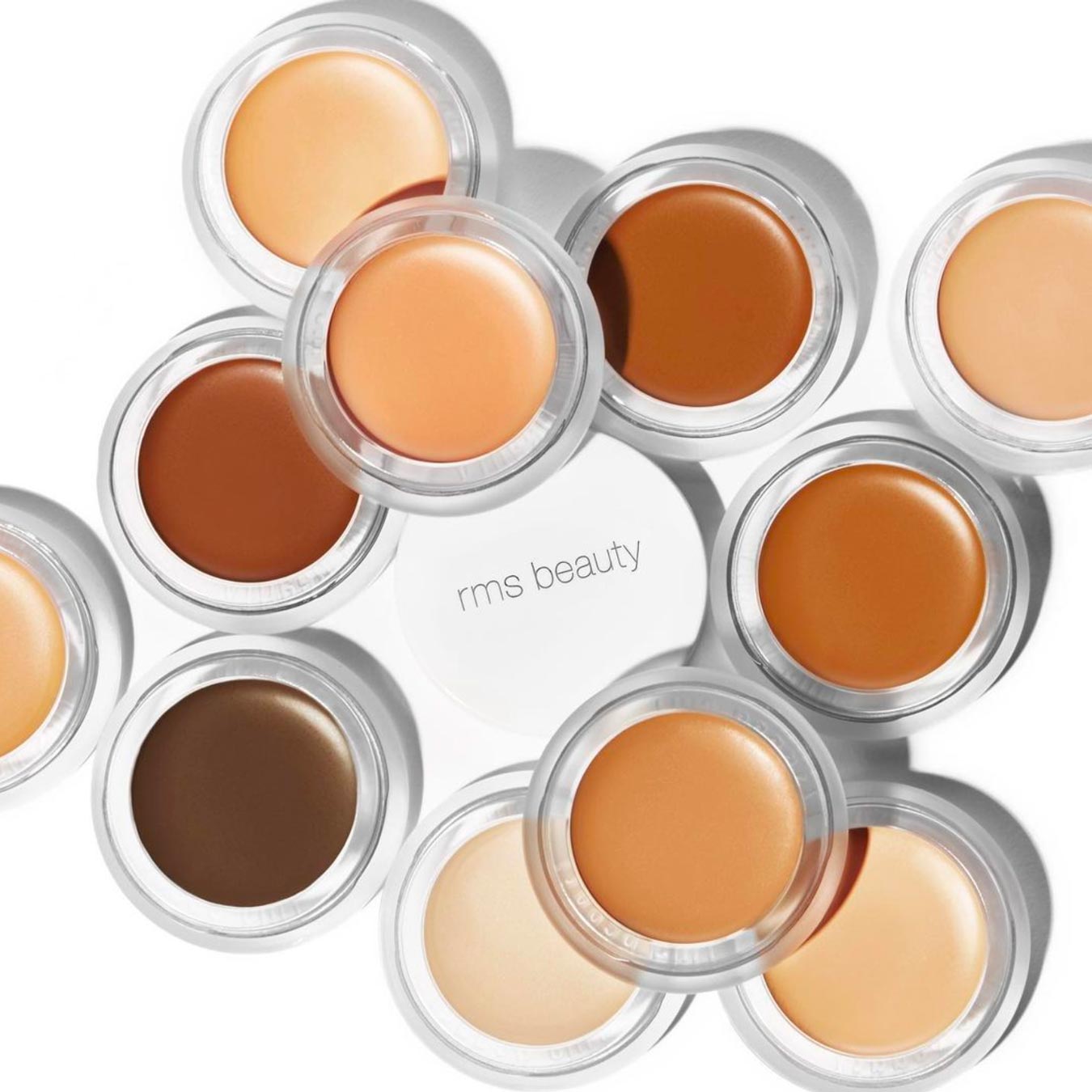
Accessories:
Veja:
A stylish and sustainable go-to footwear option, Veja utilizes a broad range of eco-friendly materials and practices in their production process. The French brand specializes in casual, wearable sneakers and focuses on transparency in all facets of the design process. The label disclosed the location and practices of its Brazilian factory and ensures a fair, livable wage for all its workers.
Product-wise, Veja’s sneakers utilize a variety of eco-conscious materials: mesh made from plastic bottles, Amazonian rubber, corn-based leather, and more. The brand has also developed new technologies to help counter what it has dubbed the ‘99% issue’: 99% of the world’s running shoes are made with 99% petroleum-based polymers.
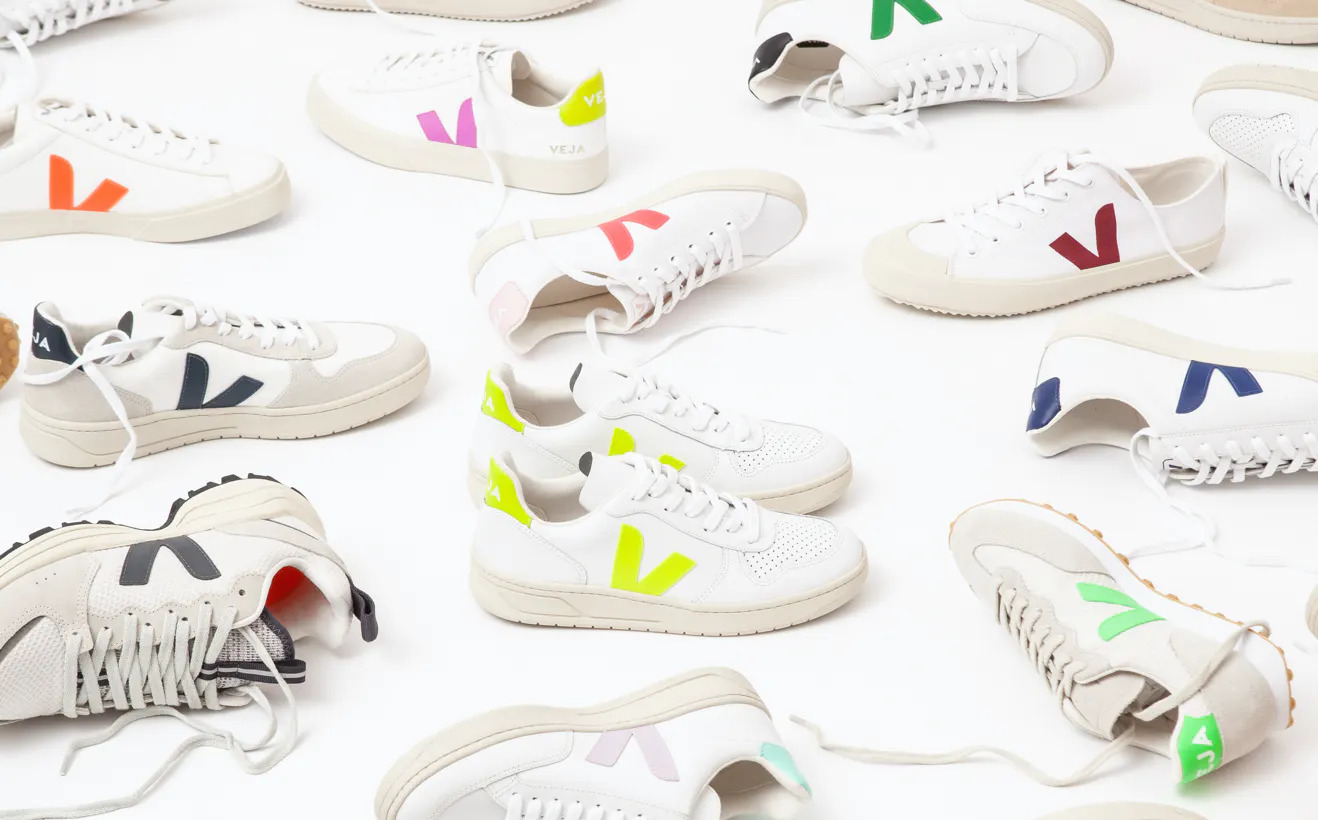
Laura Lombardi:
Responsibly made in New York and New England, jewelry brand Laura Lombardi sources a range of vintage and deadstock materials for her collections. The label uses solely recycled brass and its elegant pieces are plated in a 0-waste closed filtration system. With sustainable practices and top-notch fabrication, Lombardi’s industrial-inspired pieces are embedded with hints of sculpture and romanticism.
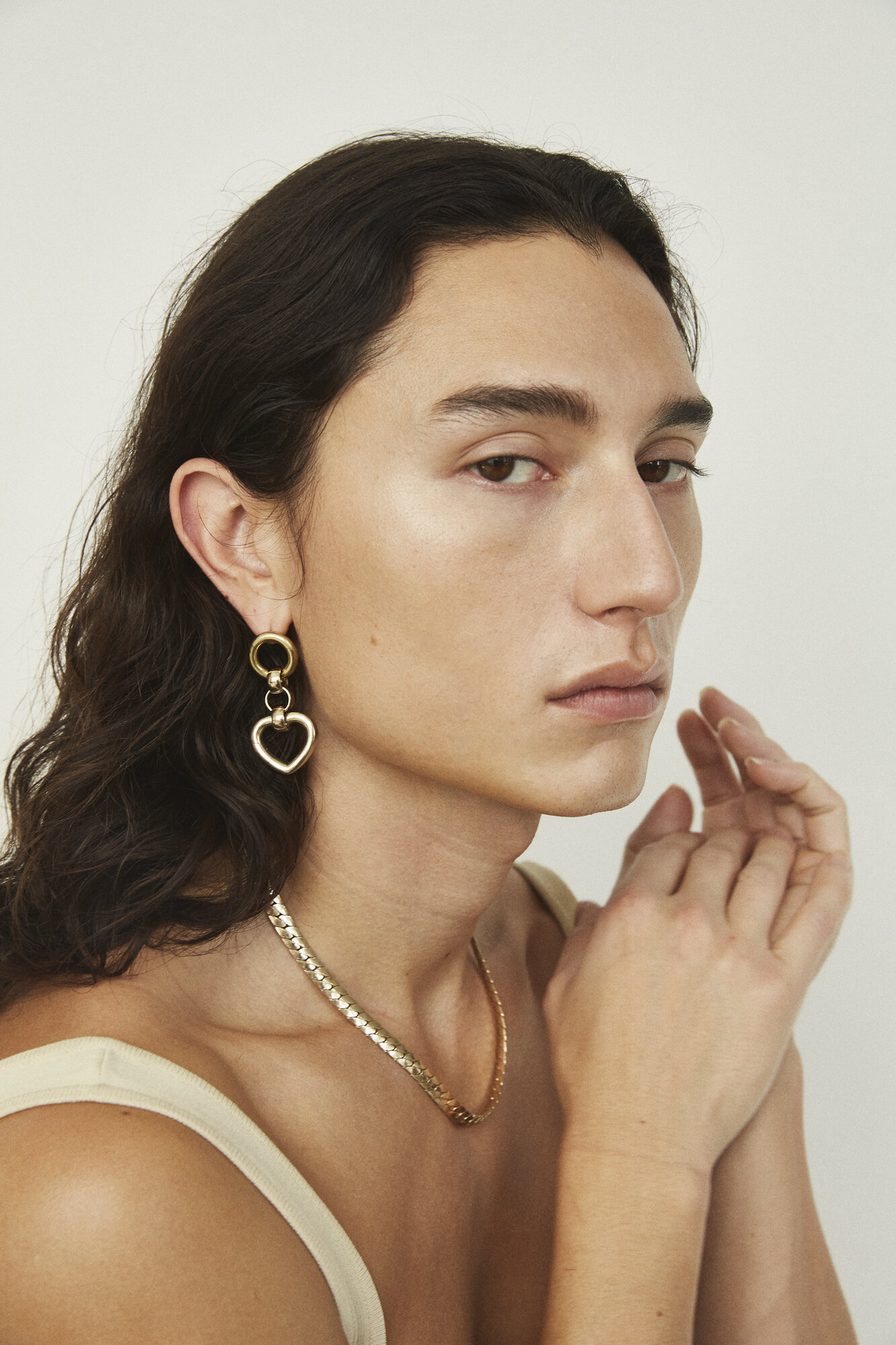
Neous:
For accessories brand Neous, less is definitely more. Crafted in Italy, the minimalist brand offers a wide range of shoulder bags, sling-backs, mules, and pumps. The brand uses leather by-products, 70% of which are sourced from the Leather Working Group: a non-profit that advocates for sustainable practices within the leather industry. The brand has also recently introduced organic and recycled fabrics to its collections. If you’re looking for consciously made leather goods, Neous is your new go-to.
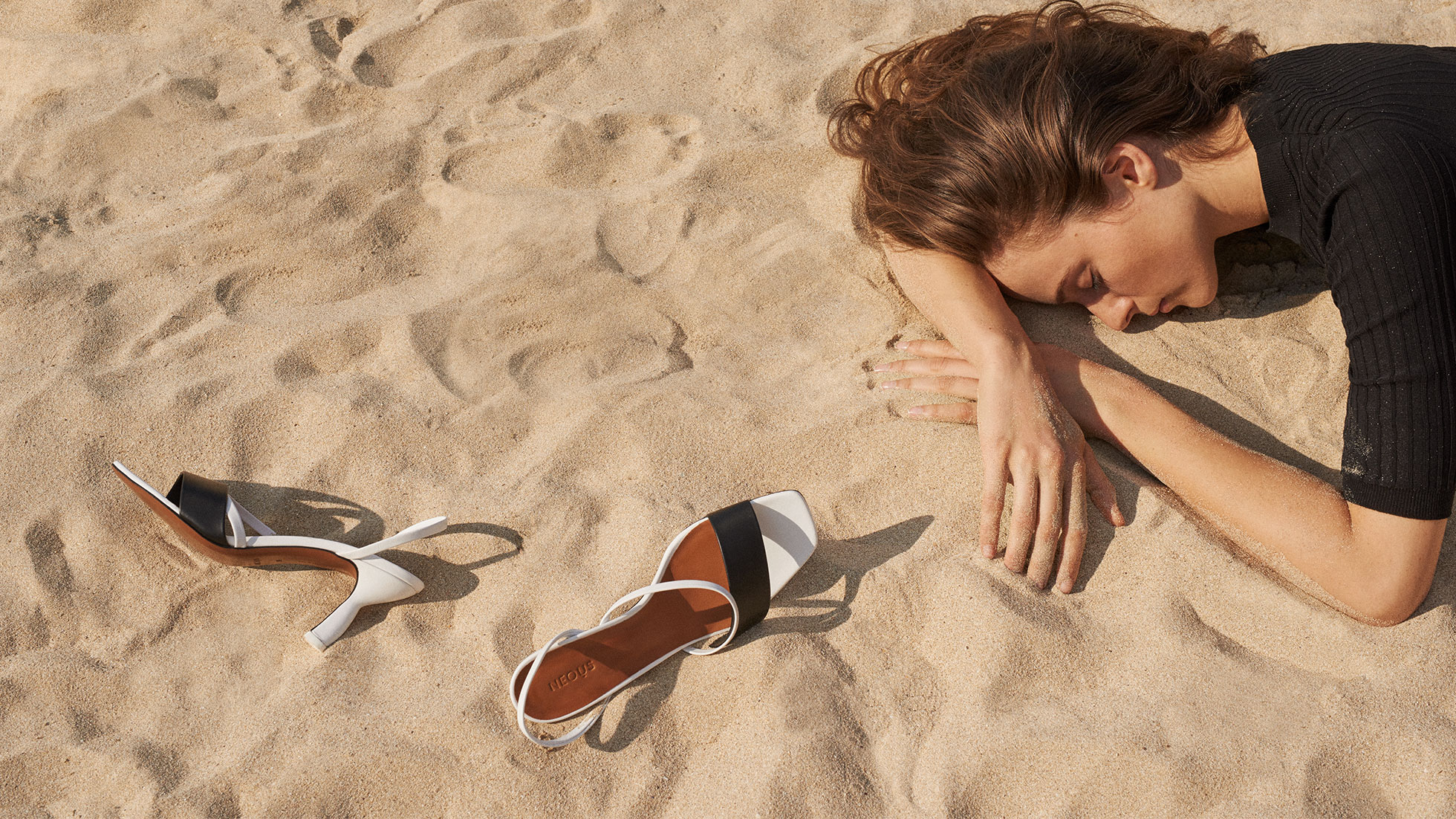
DeMellier:
A tribute to founder Mireia Llusia-Lindh’s family heritage, DeMellier fuses modern, sleek silhouettes with transparent and wholly sustainable practices. The London-based brand’s handbags are crafted in Spain and are made using mainly leather byproducts sourced from the meat industry. The label offers pre-orders to ensure that waste is kept at a minimum and all of its supple leathers are certified by the European Leather Working Group.
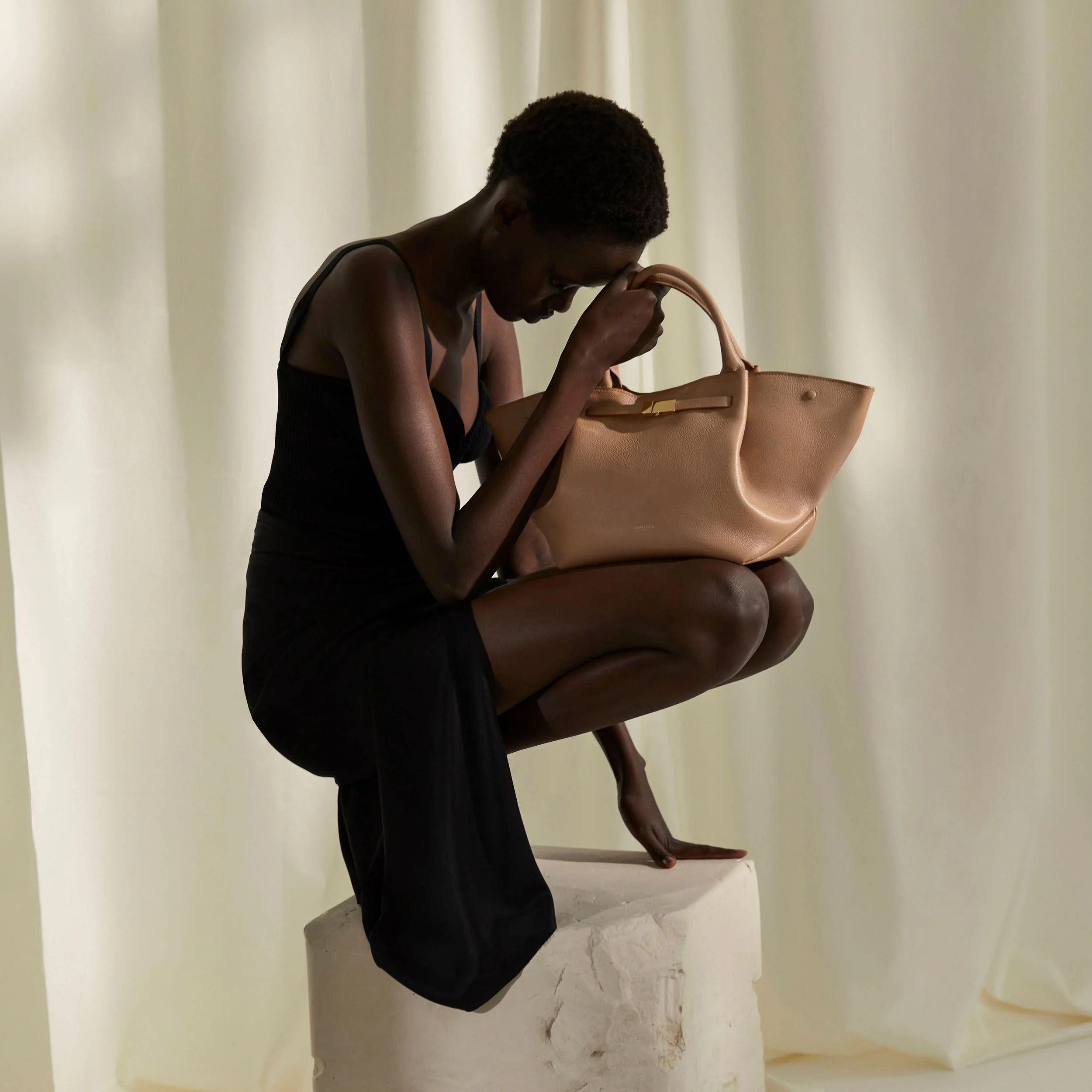
Agmes:
Handmade to order in New York City, jewelry brand Agmes combines eye-catching, sculptural silhouettes with the finest sustainable materials: 925 sterling silver, 18-karat gold vermeil, 14-karat gold, freshwater pearls, and more. The majority of the label’s supple materials are recycled and the designers work locally with NYC-based artisans to reduce its carbon footprint. Too, the brand strives for zero-waste production and returns any scrap material to its suppliers for reuse.
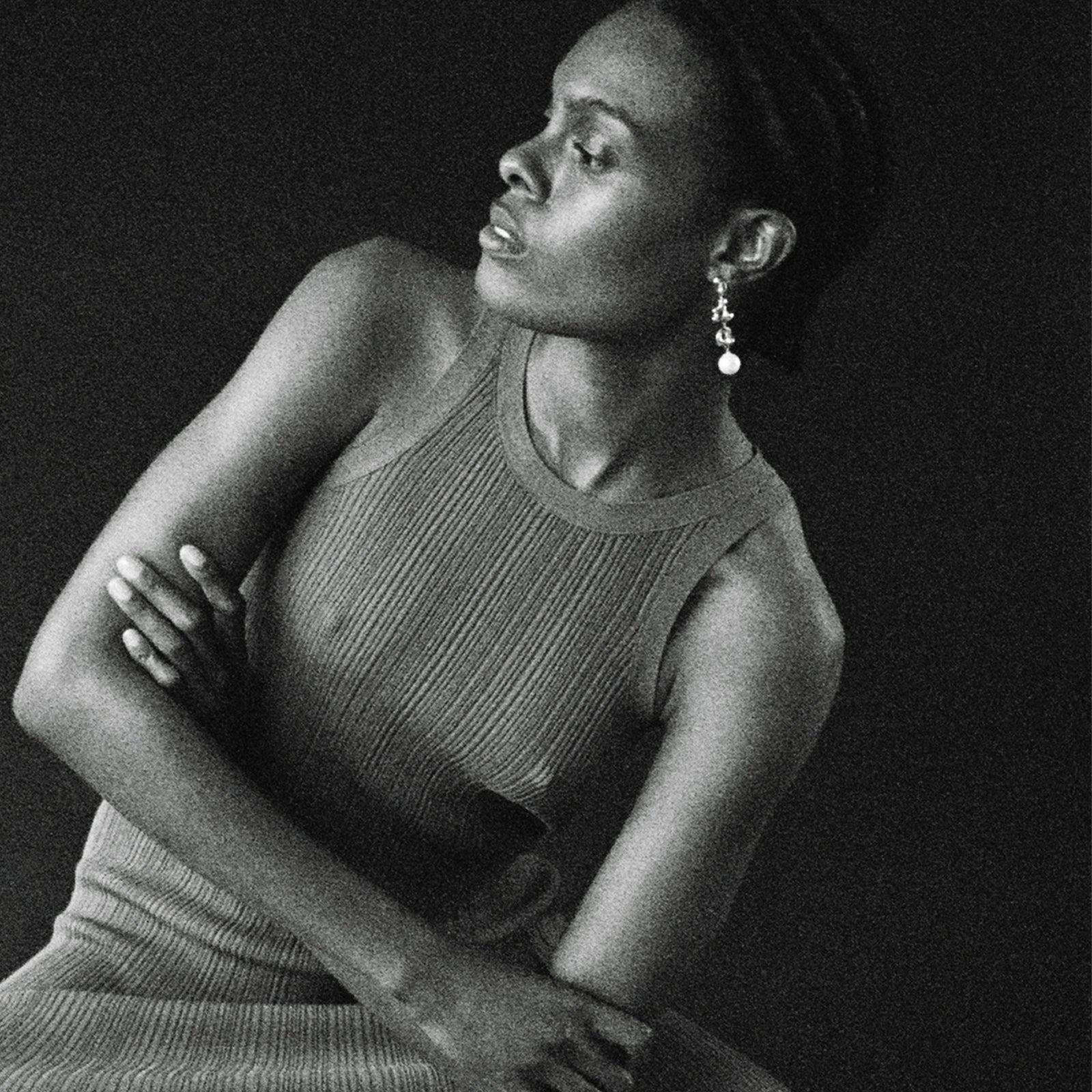
Hozen:
Established in 2018, Vegan accessories brand Hozen is committed to crafting must-have, cruelty-free handbags, totes, card holders, and so much more. Artisan made in Los Angeles, the brand utilizes pre-paid carbon offsets to counteract the environmental impact of shipping its raw materials and final products.
Per the brand, Hozen specializes in ‘vegan accessories for the conscious human,” and is steadfast on providing an ethical alternative to the vastly churning trends of the industry. The woman-owned business utilizes a variety of upcycled and biodegradable materials for its minimal, sleek accessories and also donates 10% of every sale to the non-profit Mercy for Animals.
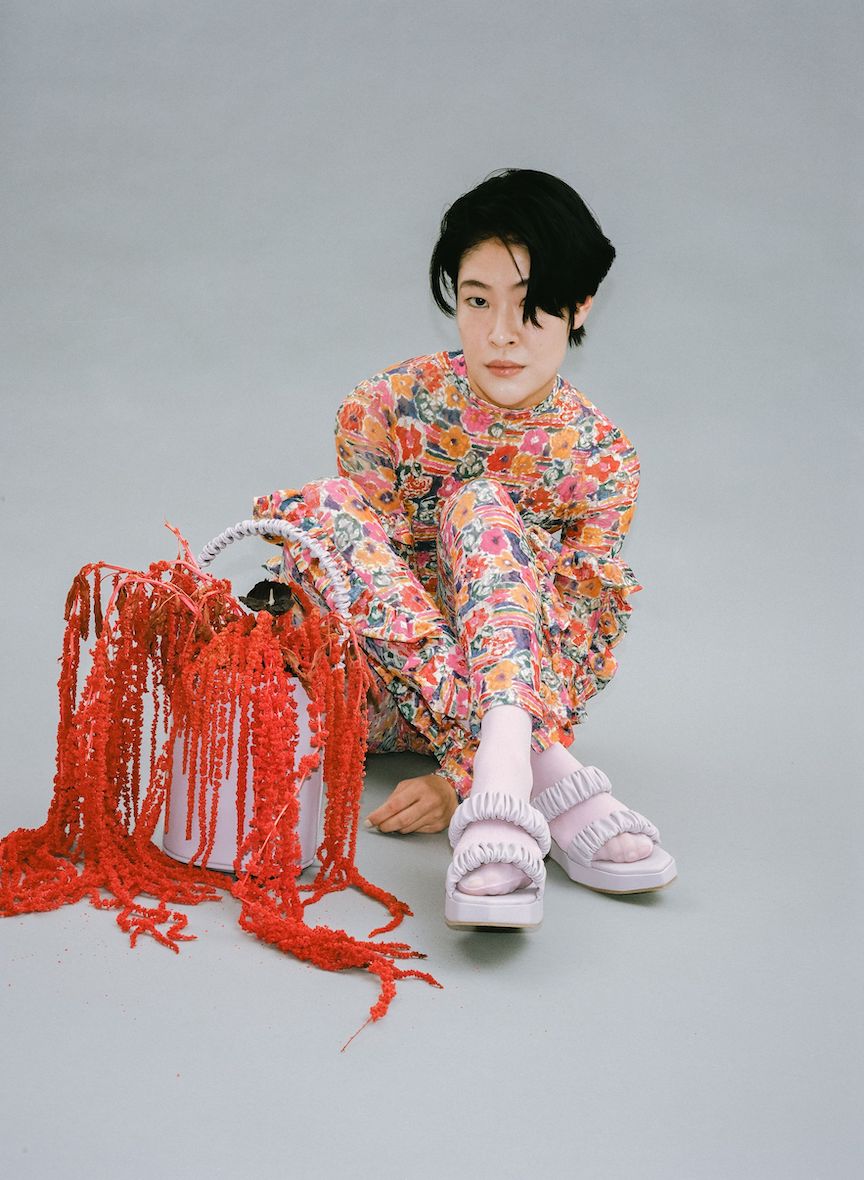
Discover More
